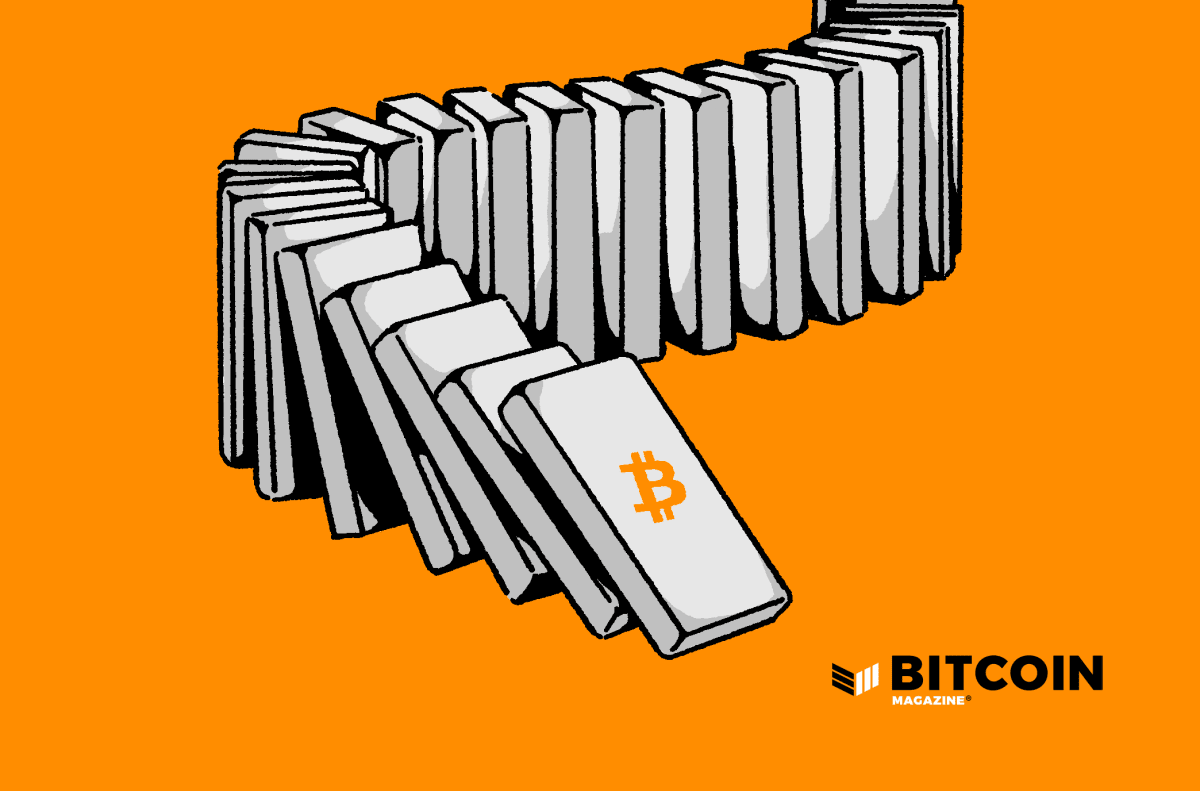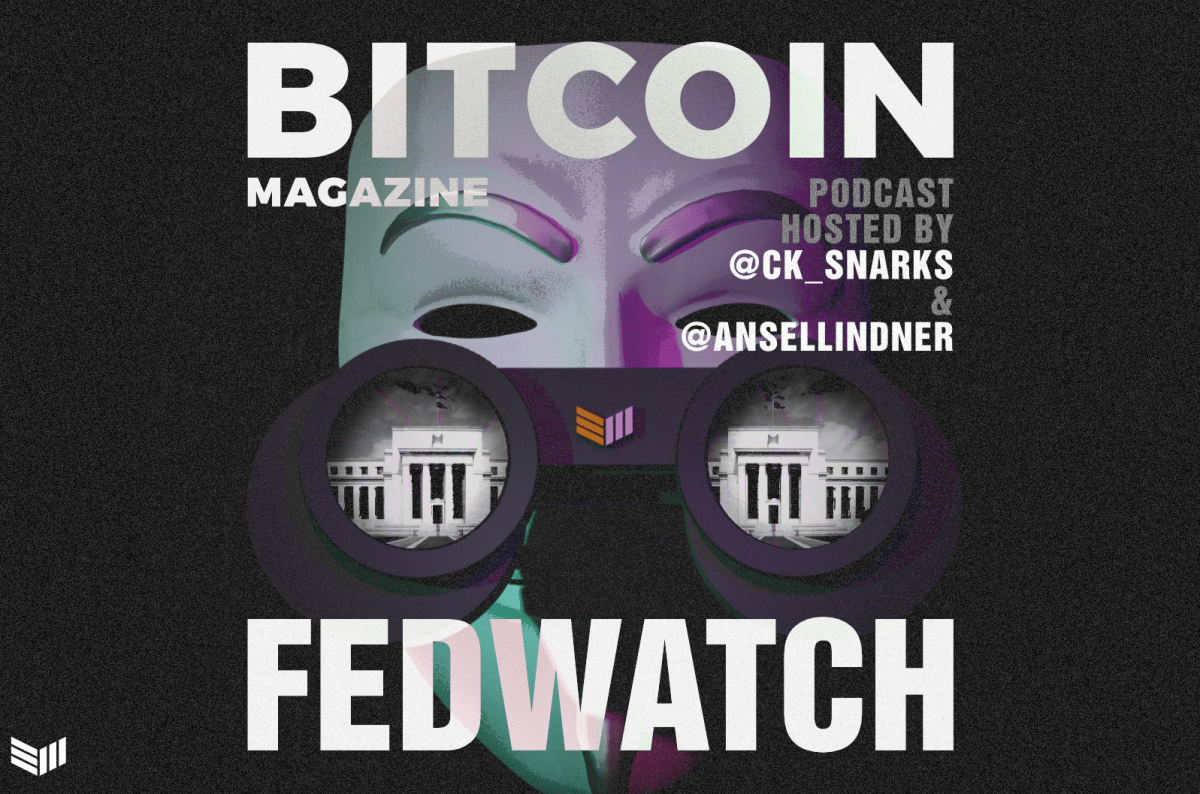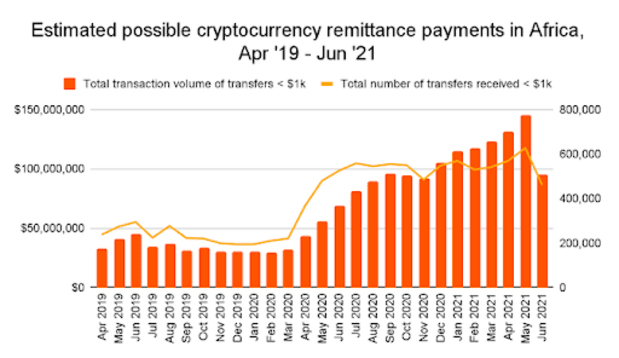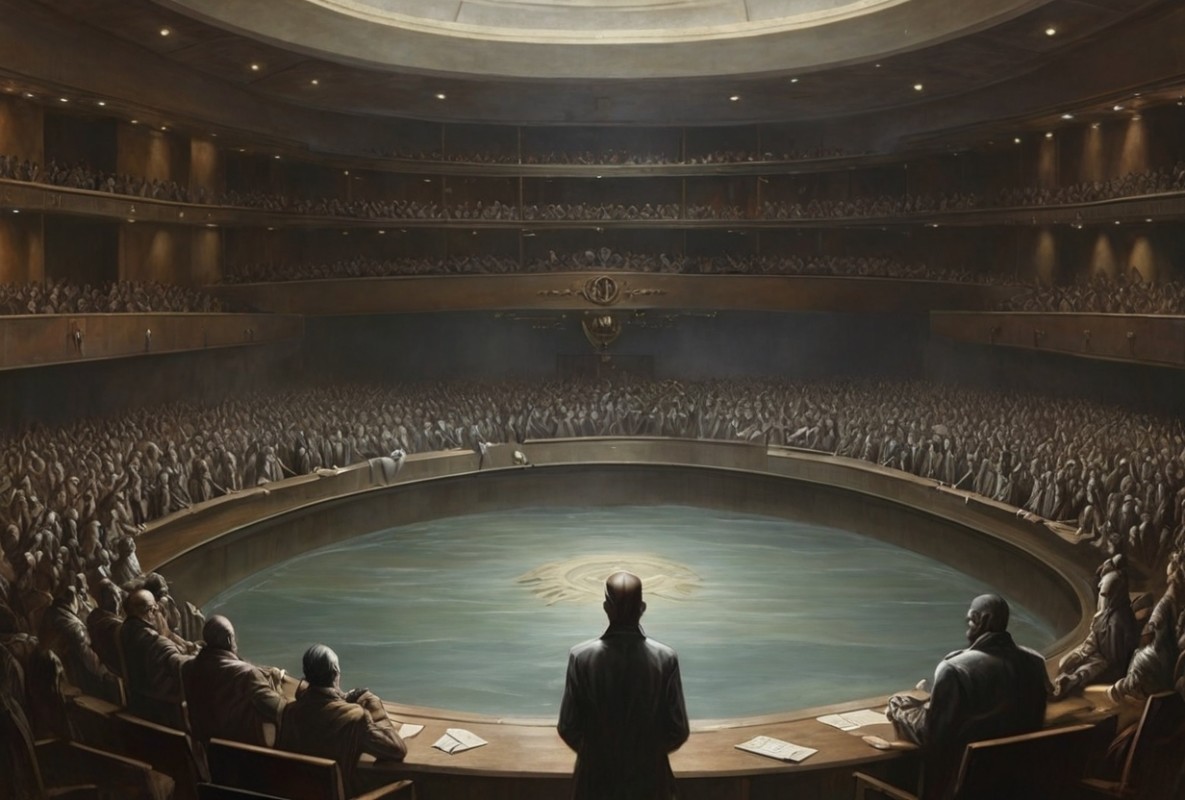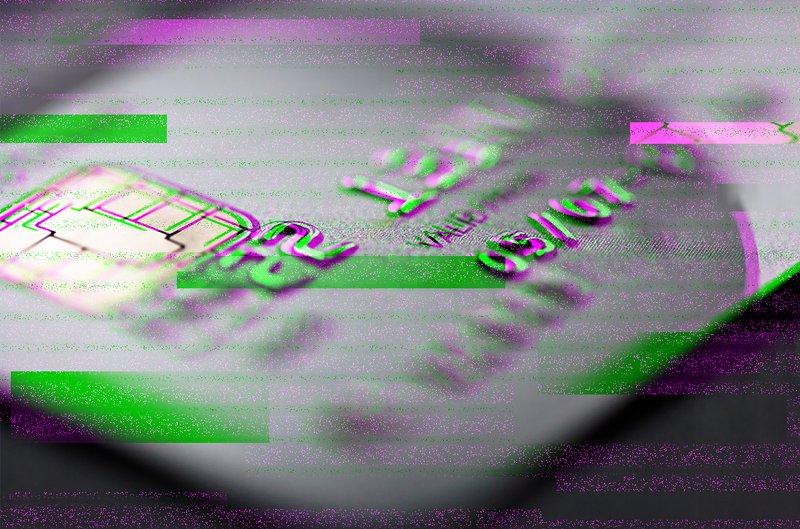Reimagine Your Life With Bitcoin
Part 2 of a series discussing the shared values between Bitcoin and Jordan Peterson’s newest book, Beyond Order.
Rule II: Imagine Your Life With Bitcoin, Then Aim Single-Mindedly at That
A reimagination of “Beyond Order” by Jordan Peterson through the lens of Bitcoin.
Preface
This is part 2 of a 12-part series. This work follows the chronological order of “Beyond Order.” Each piece represents one chapter and the corresponding subtitles below match the subtitles in the original work. If you own the book, it adds a second dimension. This writing mirrors the ideas in “Beyond Order,” offering reflection through a Bitcoin lens. All quotes credited to Jordan Peterson. All reflections inspired by Satoshi Nakamoto.
You can read part 1 here.
Who Are You — And Who Could You Be?
“You are something that is becoming…Everyone has that sense…that there is more to them than they have yet allowed to be realized. That potential is often obscured by poor health, misfortune, and the general tragedies and mishaps of life.”
We’ve all suffered financial setbacks: blindly following a friend’s investment advice, unexpected financial burdens or falling prey to a ponzi scheme. Repeated pain makes us jaded. The older we become, the more skeptical we become of anything sounding too good to be true. We are afraid of things that live beyond our comprehension. As negative financial experiences compound with age, we tend to retreat deeper into our comfort zone. The scars from pain and age merge into fear overriding our youthful sense of wonder and possibility. It’s no wonder younger generations are enamored by Bitcoin while older generations lean toward apprehension.
“But it can also be hidden by an unwillingness to take full advantage of the opportunities that life offers…Who are you?”
Fear is the natural initial reaction to what is new and foreign. But an unwillingness to explore this potential will at best stunt your growth and at worst leave you vulnerable, due to your static nature, as paradigms shift. Life offers an unlimited number of bad investment options, a limited set of good investment options and a scarcity of time to sort it out. So how do you separate the wheat from the chaff? How do you create a sensible model to evaluate Bitcoin?
“The stories we can neither ignore nor forget are unforgettable for this reason (amongst others): They speak to something we know, but do not know that we know. The ancient Greek philosopher Socrates believed that all learning was a form of remembering.”
Gold is an unforgettable story spanning thousands of years. Ask the average person “why is gold valuable?” and the common response is “because that’s the way it’s always been.” Hold a piece of gold in your hand and its allure is instinctual. Gold’s heft and shine captivates our attention, and attention is certainly worth something. Still, it is difficult for the layperson to explicitly verbalize the intangible principles that make gold valuable. Gold is something we know but do not know that we know. To seek the answer is to remember what took thousands of years to learn: scarcity, divisibility, fungibility, portability and difficulty to reproduce.
Saifedean Ammous shares the forgotten lessons of sound and unsound money in “The Bitcoin Standard.” Learn the principles of sound money and you will remember not only what made gold valuable for thousands of years, but why Bitcoin is and will be valuable for thousands to come.
“[Exodus] emerged as a product of imagination and has been transformed by constant collective retelling and reworking into an ultimately meaningful form that applies politically, economically, historically, personally, and spiritually, all at the same time. This is the very definition of literary depth.”
If you ever come across a Bitcoin maximalist, this individual exhibits the characteristics of the religious fanatic. Suspend your belief and imagine you witness a spiritual figure part the Pacific Ocean (like Moses parting the Red Sea), allowing you to walk through and exit the other side wiser, richer and freer; you emerge inspired by the knowledge that a better future has arrived. It would be hard for you not to obsessively retell and rework that story for the balance of your life. Especially if your aim is to assist your fellow man.
Whether you agree with it or not, the Bible is powerful because it exemplifies literary depth. Bitcoin is expressed across disciplines: technologically, politically, economically, historically and artistically. Categorical breadth and substantive depth are enduring characteristics of deeply meaningful stories. Bitcoin maximalists are fanatics because our existence has transformed our lives, and we are constantly retelling and reworking this ultimately meaningful story for the betterment of our peers.
The Emergence of the Unforgettable
“We may never put our finger on what has gone wrong. However, like children unfamiliar with a new game but still able to play it, we know that the rules are being broken.”
We play a game called capitalism using national currency. It’s not perfect but it’s the best economic game we know. We’ve all played Monopoly with a sketchy banker or a player who hides money under the table. It does not sit well. Even a child can sense unwritten rules are being violated and the game is not being played in good faith. It may happen once, but it’s unlikely to repeat because the player in question will suffer reputational damage and possibly be uninvited to future games. In other words, the story of their guilt will be told as a cautionary tale. The Monopoly Cheater, villain of this simple story, is repulsively memorable and must be retold because any violation of an unwritten rule attacks morality, decency and order at an individual and societal level. This negatively affects our individual conscience and cultural zeitgeist.
An alarming number of big banks, hedge funds and corporations exhibit characteristics of the Monopoly Cheater. Their injustices exposed and broadcasted many times over yet no meaningful punishment follows to reform behavior. As trust erodes, cynicism rises in its absence. When a child encounters a game run by cheaters, he or she seeks a new game with different players with higher moral standards. Bitcoin is money that can’t be cheated. We may not have the power to fix our incumbent game, but we can choose to join in a new game: Bitcoin fixes this.
“But the mere fact that social order reigns to some degree does not mean that a given society has come to explicitly understand its own behavior, its own moral code.”
It is hard to fathom a trillion dollars let alone understand where all the stimulus money goes. The “Money Printer Go Brrrr” meme serves as a cautionary satire of modern monetary policy. Lawyers will write rules and find loopholes to obfuscate transparency, enabling politicians to justify the creation of trillions of dollars without pause. We know the Cantillon Effect skews the game to favor those closest to the printing press. Stimulus money is a paradox: we recognize people are in need yet this form of delivery feels morally questionable and possibly hazardous. These violations of unwritten rules attack our psyche and corrupt our society. These trillion dollar stimulus packages may be legally approved yet it doesn’t take a lawyer to know our social contract is being abused. Our society is doing things even it no longer understands. If you think bitcoin is made out of thin air, try justifying the mechanics of governments making trillions of dollars.
Materia Prima: Who You Could Be (I)

“Materia prima — Latin for the ‘primal element.’ The alchemists regarded the materia prima as the fundamental substance from which everything else — matter and spirit included, equally — emerged, or was derived.”
The five elements in the Vedas include bhūmi (earth), jala (water), tejas (fire), marut (air) and shunya (zero). “The Saylor Series” by Robert Breedlove and Michael Saylor examines human history through the five primal elements from an engineer’s perspective. There is no scarcity of energy in the universe, only our ability (or lack thereof) to harness and channel it. Nature’s elements are raw, uncontrolled forces of chaos. Humans have engineered solutions to bring order to that chaos, turning them into predictable systems of utility. Our ability to integrate with materia prima is in proportion to our prosperity. Bitcoin is a monetary energy network that covers space and time.
Polytheism Into Monotheism, and the Emergence of the Virtuous Hero: Who You Could Be (II)
“The Mesopotamians brilliantly intuited that the highest god — the highest good — involved careful attention (the multiple, head-circling eyes of Marduk) and effective language (the magic words of Marduk, capable of generating a cosmos), in addition to the courage and strength to voluntarily confront and overcome chaos, the unknown.”

The Enuma Elish (translation: When on High) is the oldest known hero myth dating back 4,000 years. Who cares? Clearly America’s most powerful leaders who make our rules and our money. After all, Marduk is symbolically printed in plain sight on every dollar bill. Marduk is the highest god (Annuit cœptis) fighting for the highest good (top of the pyramid) who uses his head circling eyes to see everything (the all-seeing eye).
The Enuma Elish should be taken seriously precisely because its wisdom still applies to this day. Annuit cœptis is Latin for “providence has favored our undertakings.” Put another way, our most powerful watch over those who are committed to something meaningful. Why are all these symbols on our money? Because this timeless wisdom explains what is required to survive when faced with the unknown. No-coiners are faced with this exact predicament with respect to Bitcoin. Do you turn and run? Or do you act like Marduk and voluntarily confront what is new and unknown with clear eyes to make sense of your fear?
Here is a clue: Bitcoin personifies Marduk’s key characteristics. Bitcoin is a transparent network. Each full node serves as a metaphoric all-seeing eye, monitoring the network for anomalies. Bitcoin is the highest form of money ever invented. With respect to magical language, Satoshi had the courage to propose the Bitcoin white paper then later implemented it in code (computer programming language); something our ancestors would certainly compare to magic.

The Enuma Elish tells the story of a war among gods that ends when Marduk attains victory uniting the fractured parties. The Latin phrase “E pluribus unum” means “Out of many, one.” The phrase is inscribed on our coins, included within the Great Seal of the United States and is the motto of the United States Marines. The power to unite at a time when everything is unraveling is worth exploring despite the risk. Bitcoin has the power to unite because no one has the power to manipulate it and everyone has access to it. Bitcoin represents the highest good.
Hero, Dragon, Death and Rebirth: Who You Could Be (III)
“That which you most need to find will be found where you least wish to look.”
We are born into a world that normalizes Keynesian monetary policy. All governments follow the tenets of Keynesian economics: the belief that government intervention can stabilize the economy. This means governments expand or contract the money supply in an attempt to control the economy under various circumstances. On the surface, it seems to have its merit, yet we know money that is easily reproduced violates sound money principles and inevitably leads to unintended consequences.
We are all conditioned to believe our government has the capability to effectively manipulate money resulting in better outcomes. History shows the contrary. Bitcoin is founded on Austrian economic principles — the counterbalance to Keynesian economics. The Mises Institute continues in the spirit of great Austrian economic thinkers like Friedrich Hayek, Ludwig Von Mises and Murray Rothbard. To find what you most need, you may need to deconstruct ideas you were born into, and that is not a place most people wish to look.
How to Act
“Aim at something profound and noble and lofty.”
Bitcoin is a candle in the darkness that exposes a known truth: our money is broken. Government experts insist on debasing our hard-earned money because these events were unforeseeable. We are all passengers on the Titanic and Bitcoin is Noah’s Ark.
Imagine Your Life With Bitcoin, Then Aim Single-Mindedly at That
This is a guest post by Nelson Chen. Opinions expressed are entirely their own and do not necessarily reflect those of BTC, Inc. or Bitcoin Magazine.

